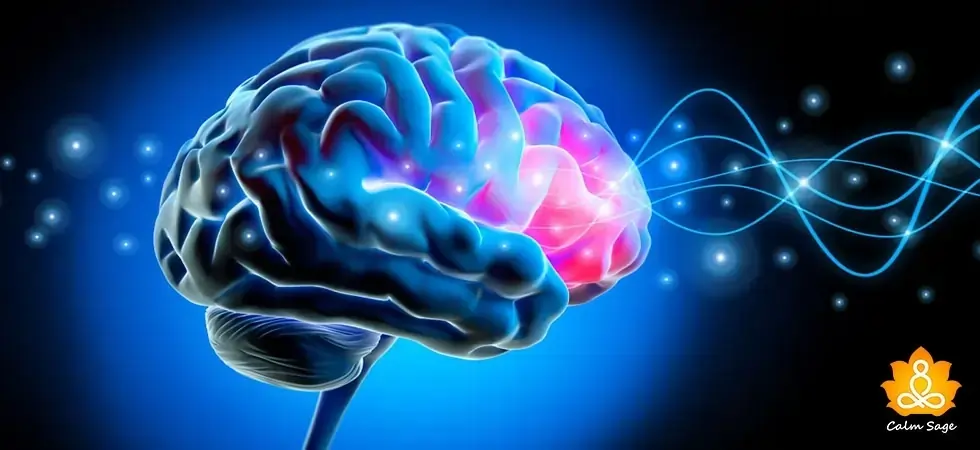The Psychology Of Apophenia: Does Finding Meaning In Every Instance Usual?

We often ask, “Does everything happen for a reason?” Well, let us understand by digging a little deep into psychology. Do you know that our brains are pattern-detection organs that keep on connecting the dots? Without such a theory, maybe we would never be able to predict reproduction or survival in this world.
When we keep on searching for meaning in occurrences, we conquer a pattern. But, when we start finding meaning in instances wherein there’s no existence of meaning, this can be defined as apophenia or patternicity.
Well, apophenia or patternicity can be healthy only when people are engaged in finding meaning in illustrations. However, when apophenia gets mixed up with psychotic states (such as schizophrenia), it can be unhealthy. In this blog, let us explore the psychology behind apophenia and how it can be manifested positively along with the examples. So, let us get started!
What does Apophenia mean?
Apophenia is not a mental health disorder however, it is a term used to describe a symptom. If you will observe properly, you will be able to find that we all somewhere experience apophenia. It’s a human tendency to make connections or to connect the dots.
Some people consider it as “magical thinking” from time to time because it helps in creating order especially when life feels out of order.
Apophenia is generally a sign of psychosis. Wherein, psychosis is a mental state which can be identified through lost touch with real-self. Psychosis is commonly seen in mental health disorders like schizophrenia, depression, or bipolar disorder.
However, apophenia is commonly seen in schizophrenia as people mostly feel detached from the real world which is followed by hallucinations and delusions.
Apophenia can also occur in non-psychotic people. It makes sense in non-psychotic people because we find comfort in finding meaning in everything that happens to us.
Examples of Apophenia
Here are some examples of apophenia which are uncomfortable, unnatural, and most do not exist:
- Hearing random sounds
- Seeing pictures or figures in clouds
- Believing in signs which do not even exist
- Seeing motion in natural scenes
- Interpreting objects
- Seeing a winning streak in everything
Types of Apophenia
Below are some of the common types of apophenia:
- Clustering illusion: This type of apophenia includes seeing patterns in data or even when there’s no such connection.
- Confirmation bias: This type of apophenia is based on the tendency to accept information that is only based on beliefs.
- Gambler’s fallacy: This type of apophenia includes believing that current events affect future events, even when the series are not related to each other.
- Pareidolia: This type of apophenia includes hearing a sound or seeing an image from auditory stimuli or random visuals.
Difference between pareidolia and apophenia
Here are some of the common differences between pareidolia and apophenia:
Apophenia |
Pareidolia |
| It is a tendency to perceive a connection or meaningful pattern | It is a tendency to perceive a specific often meaningful pattern |
| Example: Finding connections in random or unrelated things such as objects or ideas | Example: Finding a connection in an image or a random or ambiguous pattern |
| Frequently associated with schizophrenia | Frequently associated with schizophrenia |
Causes of Apophenia
Since apophenia is more related to psychosis, it can also be caused by mental health disorders like severe depression, schizophrenia, or bipolar disorder. Here are some of the common causes of apophenia discovered in Psychology:
- Increased longing to find meanings or patterns
- Certain personality types such as “openness”
- Preference for more positive results or outcomes
- Concept of “gambler fallacy”
- Family history
- Brain chemistry
- Environmental exposures
- Substance abuse
Treatment and Coping with Apophenia
In most cases, apophenia does not require treatment because it is not harmful. However, when it is related to schizophrenia, delusions, or severe depression, it may require treatment. Here are some common treatment methods used for treating apophenia in clients with schizophrenia, bipolar disorder, and others:
- Medications like antipsychotics
- Psychotherapy options like Cognitive behavioral therapy (CBT)
Here are some quick and effective tips to learn coping strategies for apophenia:
- Establish a bond or trustful relationship with yourself: The first ever step to managing or treating apophenia is to create a trustful relationship with yourself so that you can bring back your senses into reality and work on your real goals.
- Remain calm: Whenever you find yourself finding a pattern or thinking everything happens for a reason, remain calm, and slightly bring your focus to the real world and reassure that you’re in a safe and comfortable place
- Cultivate empathy: Managing your symptoms can be a difficult process however, with the help of empathy and self-compassion, you can put yourself on the road to recovery.
- Track your symptoms and connect with a mental health professional during a crisis: Keep on tracking your symptoms and whenever you find an unhealthy pattern in your symptoms, connect with a mental health professional for proper diagnosis and support.

Great for a large network of licensed therapists
-
$60 to $90/week, billed every 4 weeks
-
Therapy via messaging, phone, or live video chat
-
Flexible cancellation at any time
20% off your first month

Great for CBT Based therapists
-
$40/week, billed every 4 weeks
-
Therapy via messaging, phone, or live video chat
-
Specialization for CBT based Therapy
20% off your first month

Best for Treatment Plants
-
$60 to $90/week, billed every 4 weeks
-
Therapy via messaging, phone, or live video chat
-
Flexible cancellation at any time
$100 off your first month with code SPACE
I hope this blog helps you understand everything you need to know about apophenia. Comment down and share your views on apophenia.
For more such content, connect with us through all social media platforms.
Thanks for reading!




















